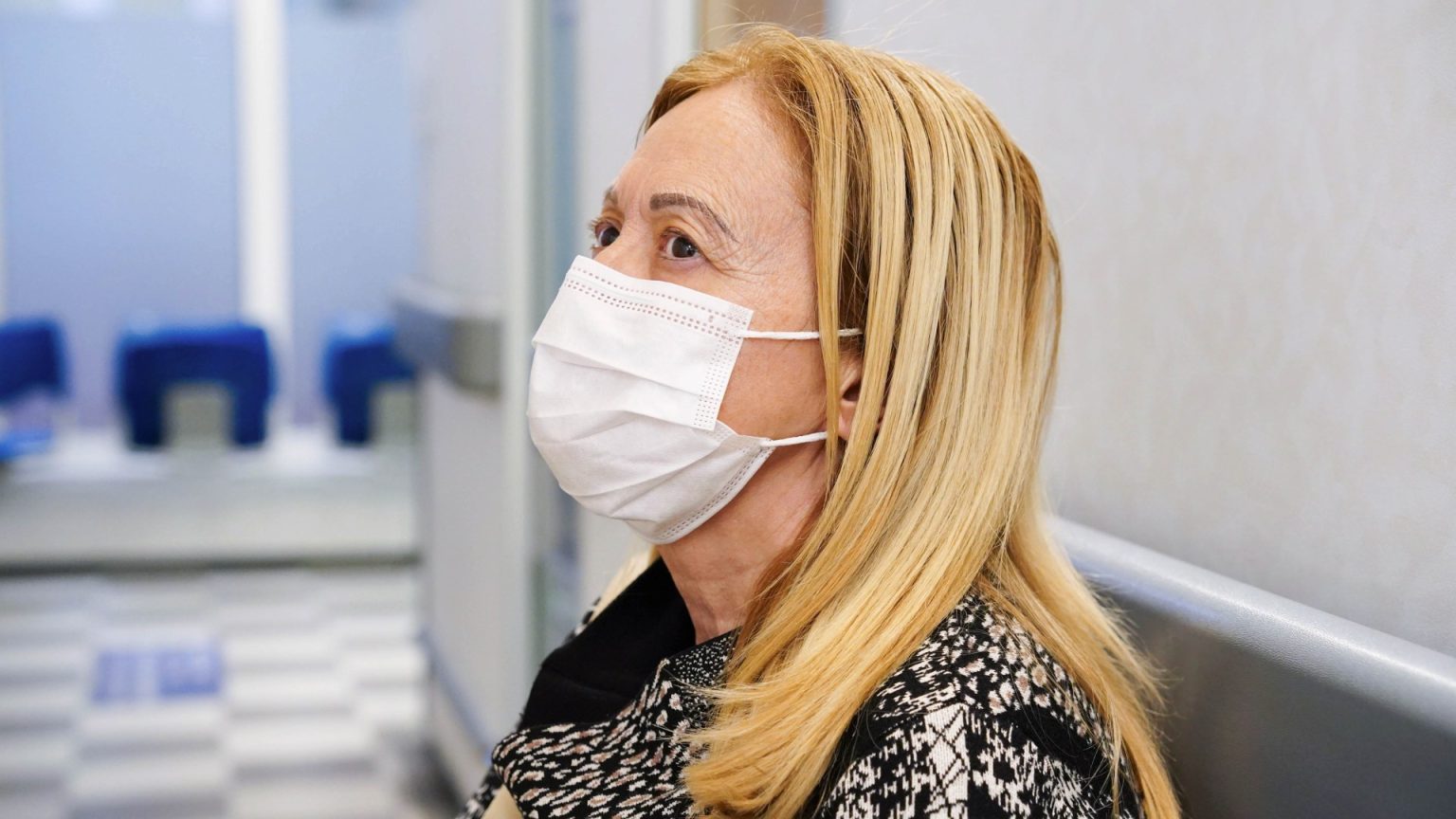The UK’s National Health Service (NHS) is grappling with a “quad-demic” of winter illnesses, forcing several hospitals to reinstate mandatory mask-wearing policies reminiscent of the Covid-19 pandemic. This resurgence of mask mandates comes as hospitals struggle to cope with a surge in patients suffering from a combination of flu, Covid-19, Respiratory Syncytial Virus (RSV), and norovirus. The confluence of these illnesses has placed an unprecedented strain on resources and bed availability, leading to extended wait times in emergency departments and prompting calls for patients to seek alternative care options for non-urgent issues.
Hospitals across the country, including Chesterfield Royal Hospital, University Hospitals of Leicester NHS Trust, and hospitals in Lincolnshire, have reintroduced mandatory masking for staff, patients, and visitors in certain areas. These measures aim to curb the spread of respiratory viruses, particularly in high-risk environments. The decision follows a spike in cases of Covid-19, influenza A, and RSV, both within hospitals and in the wider community. The rising number of staff absences due to these illnesses has further compounded the challenges faced by hospitals already operating at or beyond capacity.
The situation has escalated to the point where some hospitals have declared critical incidents, signaling an inability to cope with the current demand. Royal Stoke University Hospital, for instance, has declared its eighth critical incident of the year, warning patients of significantly longer wait times in A&E. Similarly, Cwm Taf Morgannwg University Health Board issued an urgent alert regarding exceptionally busy emergency departments and limited bed availability at several hospitals within their jurisdiction. These critical incidents reflect the immense pressure on the NHS and its struggle to provide timely and effective care amid the surge in winter illnesses.
The strain on the NHS is not limited to specific regions. Hospitals across the UK are experiencing similar challenges. The Royal Hampshire County Hospital and Basingstoke and North Hampshire Hospital have also declared critical incidents due to capacity constraints, citing high admission rates, infectious patients requiring isolation, and a low discharge rate. This widespread struggle highlights the severity of the “quad-demic” and its impact on the entire healthcare system. Hospitals are urging patients with non-urgent conditions to utilize alternative healthcare avenues, such as contacting the NHS 111 service, visiting a GP, or seeking care from a pharmacy or urgent treatment center.
The current situation underscores the importance of preventative measures. The NHS is strongly encouraging eligible individuals to receive their flu, Covid-19, and RSV vaccinations. These vaccines offer crucial protection against severe illness and hospitalization, thereby helping to alleviate the burden on healthcare services. While the RSV vaccine rollout has recently expanded, delays may mean some vulnerable individuals haven’t received it in time for the current surge. For those not eligible for free NHS vaccinations, options to purchase them privately are available, albeit at a cost. In the absence of a norovirus vaccine, preventative measures such as proper hand hygiene and isolation when ill remain crucial.
Beyond vaccinations, other protective measures are also recommended. The reintroduction of mandatory mask-wearing in several hospitals reflects the continued importance of this measure in preventing the spread of respiratory illnesses. Masks act as a barrier, reducing the transmission of droplets containing viruses. Furthermore, simple precautions like covering coughs and sneezes, proper tissue disposal, and ensuring good ventilation can further mitigate the risk of infection. The combined efforts of vaccination, mask-wearing, and other preventative measures are essential in navigating the challenges of the “quad-demic” and protecting the NHS.


